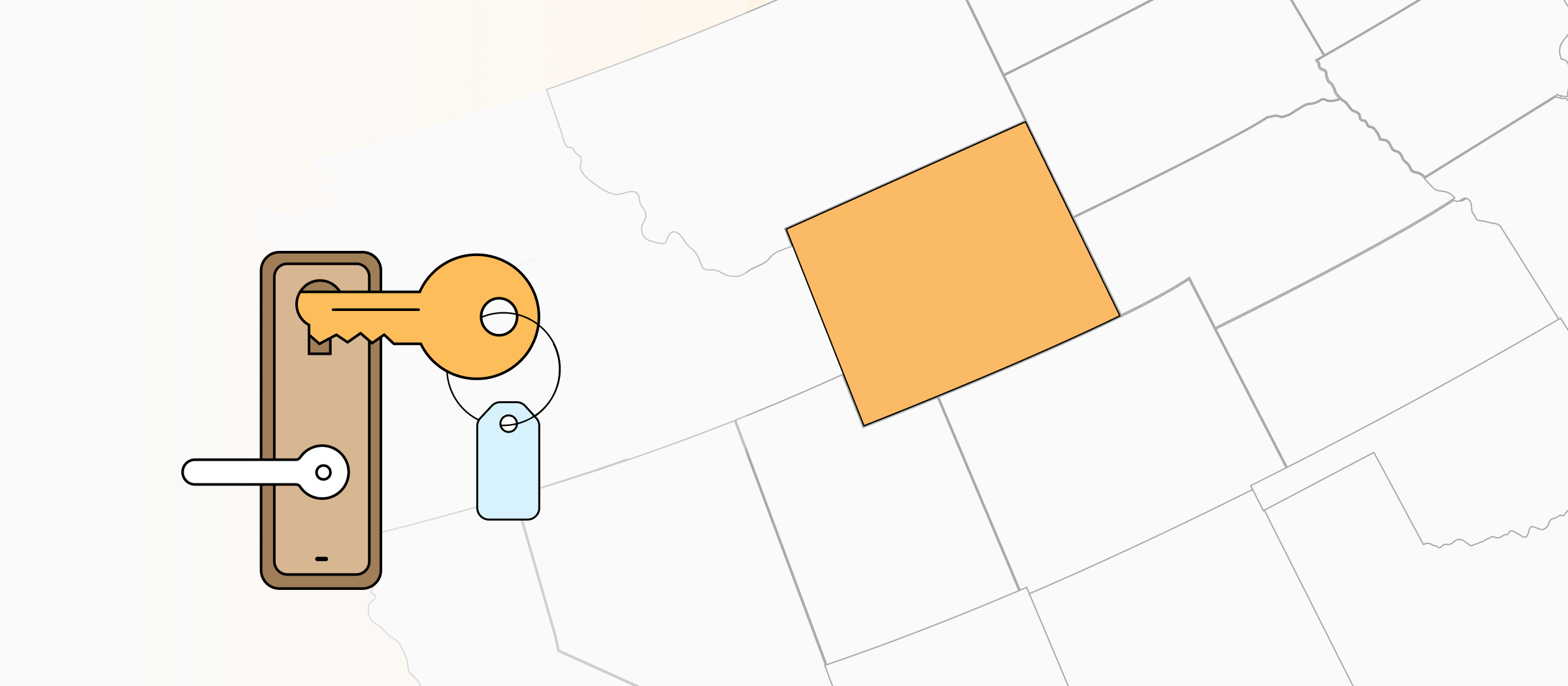Note: In Wyoming, every legal obligation between the landlord and the tenant can be changed or waived through a written agreement. None of the default standards apply if the written lease explicitly says otherwise.
| Legal Reasons for Entry |
|
| Notice Requirement |
|
| Penalties for Illegal Entry |
|
Does a Landlord Have the Right To Enter a Rental Property in Wyoming?
Wyoming landlords have the right to enter a rental property for the following reasons:
- Maintenance.
- Inspecting the property.
- Showing the property for rental or sale.
Can a Landlord Enter Without Permission in Wyoming?
Wyoming landlords can usually enter a rental property legally without asking permission when entering for permitted reasons. The landlord only needs permission to enter if the renter has a specific, reasonable basis to demand permission.
Can a Landlord Enter Without the Tenant Present in Wyoming?
Wyoming landlords can legally enter a rental property without the tenant present.
Can a Landlord Show a House While Occupied in Wyoming?
Wyoming landlords can show an occupied house. The renter can’t unreasonably refuse.
How Often Can Landlords Conduct Routine Inspections in Wyoming?
Wyoming landlords have no specific limit on how often they can enter for inspections. The landlord isn’t allowed to enter unreasonably often, but what’s reasonable gets decided case by case.
How Much Notice Does a Landlord Need To Provide in Wyoming?
Wyoming landlords don’t have to provide a particular amount of advance notice before entering. Landlords have to enter in a manner that’s reasonably considerate of the renter, but what’s reasonable gets decided case by case. 24 hours of notice is a reasonable minimum outside of emergencies.
Can a Landlord Enter Without Notice in Wyoming?
Wyoming landlords can enter without notice for legally allowed purposes. The renter does have a right to quiet enjoyment of the property, so repeated unannounced entries might count as a constructive eviction. Renters can reasonably expect advance notice before entry unless there’s a specific justification otherwise.
How Can Landlords Notify Tenants of an Intention To Enter in Wyoming?
Wyoming landlords can notify tenants verbally or in writing about an intention to enter.
Can a Tenant Refuse Entry to a Landlord in Wyoming?
Wyoming tenants can refuse entry when a landlord isn’t entering for repairs, inspection, or a showing. Even for legally allowed reasons, the tenant can refuse entry when there are specific, reasonable grounds to do so (for example, if a landlord wants to show the property at 3:00 AM).
What Happens If the Tenant Illegally Refuses Entry to the Landlord in Wyoming?
Wyoming landlords can get a court order to force access, or sue the tenant for damages, when a tenant illegally refuses entry. In extreme cases, the landlord might be able to terminate the lease, but a court would usually have to approve such a drastic measure.
Can a Tenant Change the Locks Without Permission in Wyoming?
Wyoming tenants can change locks without permission in Wyoming. Note that the landlord still has a right to enter for specific reasons, so it’s reasonable for tenants to provide copies of current keys.
What Can a Tenant Do If the Landlord Enters Illegally in Wyoming?
Wyoming tenants might get a court order to force access or sue the landlord for damages, if the landlord enters illegally. In cases of extreme interference, the tenant can terminate the lease by claiming constructive eviction and moving out.
Sources
- 1 Wy. Stat. § 1-21-1202(d) (2022)
-
“Any duty or obligation in this article [the Wyoming Residential Rental Property Act] may be assigned to a different party or modified by explicit written agreement signed by the parties.”
Source Link - 2 Wy. Stat. § 1-21-1205(a) (2022)
-
“No renter shall: (i) Intentionally or negligently destroy, deface, damage, impair or remove any part of the residential rental unit or knowingly permit any person to do so; (ii) Interfere with another person’s peaceful enjoyment of the residential property; or (iii) Unreasonably deny access to, refuse entry to or withhold consent to enter the residential rental unit to the owner, agent or manager for the purpose of making repairs to or inspecting the unit, and showing the unit for rent or sale.”
Source Link - 3 Mileski v. Kerby, 57 Wyo. 109, 117 (Wyo. 1941)
-
“As a rule, in order to constitute a constructive eviction, acts or omissions of a landlord in interference with his tenant’s use and enjoyment must indicate an intention on his part that the tenant shall no longer continue to hold and enjoy the demised premises.” Mileski v. Kerby, 57 Wyo. 109, 117 (Wyo. 1941) (quoting 36 C.J. 263 § 989) (See for clarification Scott v. Prazma, 555 P.2d 571, 580 (Wyo. 1976) (“[T]here must be an intent on the part of the landlord to deprive the tenant of the enjoyment and use of the premises before there can be a constructive eviction. That does not mean there must be an actual subjective intention in the mind of the landlord. It may be inferred from the character of the lessor’s acts if their natural and probable consequences are such as to deprive the lessee of the use and enjoyment of the leased premises.”)
Source Link - 4 Baker v. Jones, 69 Wyo. 314, 330 (Wyo. 1952)
-
“Forfeitures are not favored. Before one can declare a forfeiture it must appear that he has a clear right and then too he himself must be free from blame in the premises. Every reasonable presumption is against a forfeiture and every intendment and presumption is against a person seeking to enforce it.”
Source Link

